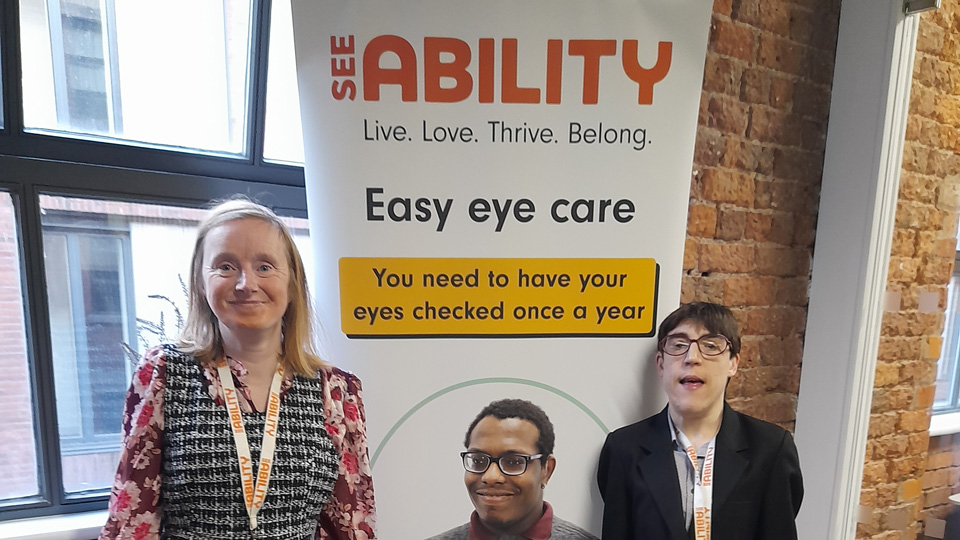- OT
- Professional support
- Health services
- Embedding Easy Eye Care services in the North West
Embedding Easy Eye Care services in the North West
Event provides opportunity to consider how the pathway could be promoted, following the launch of the NHS Greater Manchester five-year plan

13 December 2023
An event hosted by Primary Eyecare Services and SeeAbility has recognised work being done to improve eye care services for people with learning disabilities in Greater Manchester, Cheshire, Merseyside, Lancashire, and South Cumbria.
At the Seeing Beyond the Challenges event, held on 28 November, eye care organisations, practitioners, and patients shared their support for the Easy Eye Care Pathway, which has been designed to make it easier for people with learning disabilities and autism to access good eye care.
The event provided an opportunity to agree on how access to the Easy Eye Care Service can be embedded and promoted following the launch of NHS Greater Manchester’s five-year plan to improve access to primary care services and reduce health inequalities.

Attendees heard from patients with lived experience of accessing the pathway, including North West eye care champion, Joanne Kennedy, from SeeAbility and Manchester People First.
Kennedy said: “Because of my own lived experience, I know how important it is for people with learning disabilities to be able to get the eye care they need. The Easy Eye Care Pathway will help people to maximise what they can see and detect eye problems early on.”
“This will help people with learning disabilities to be independent and live great lives,” Kennedy added.
Edward Ovenden, a practitioner who delivers the pathway, also delivered a talk at the event.
Richard Everitt, chair of Primary Eyecare Services’ Easy Eye Care working group, and the organisation’s service development director, commented: “Everybody working in healthcare recognises the importance of addressing health inequalities, but we haven’t done enough yet to meet the additional needs of people with learning disabilities.”
The Easy Eye Care Pathway offers an opportunity for the eye care sector to address those needs, Everitt said, “by providing an essential service that supports patients who are frequently overlooked in their efforts to lead independent and fulfilling lives.”
The pathway was developed by the Local Optical Committee Support Unit, with the help of SeeAbility, Mencap, and the Royal College of Ophthalmologists.
More on the Easy Eye Care Pathway
Advertisement


Comments (0)
You must be logged in to join the discussion. Log in